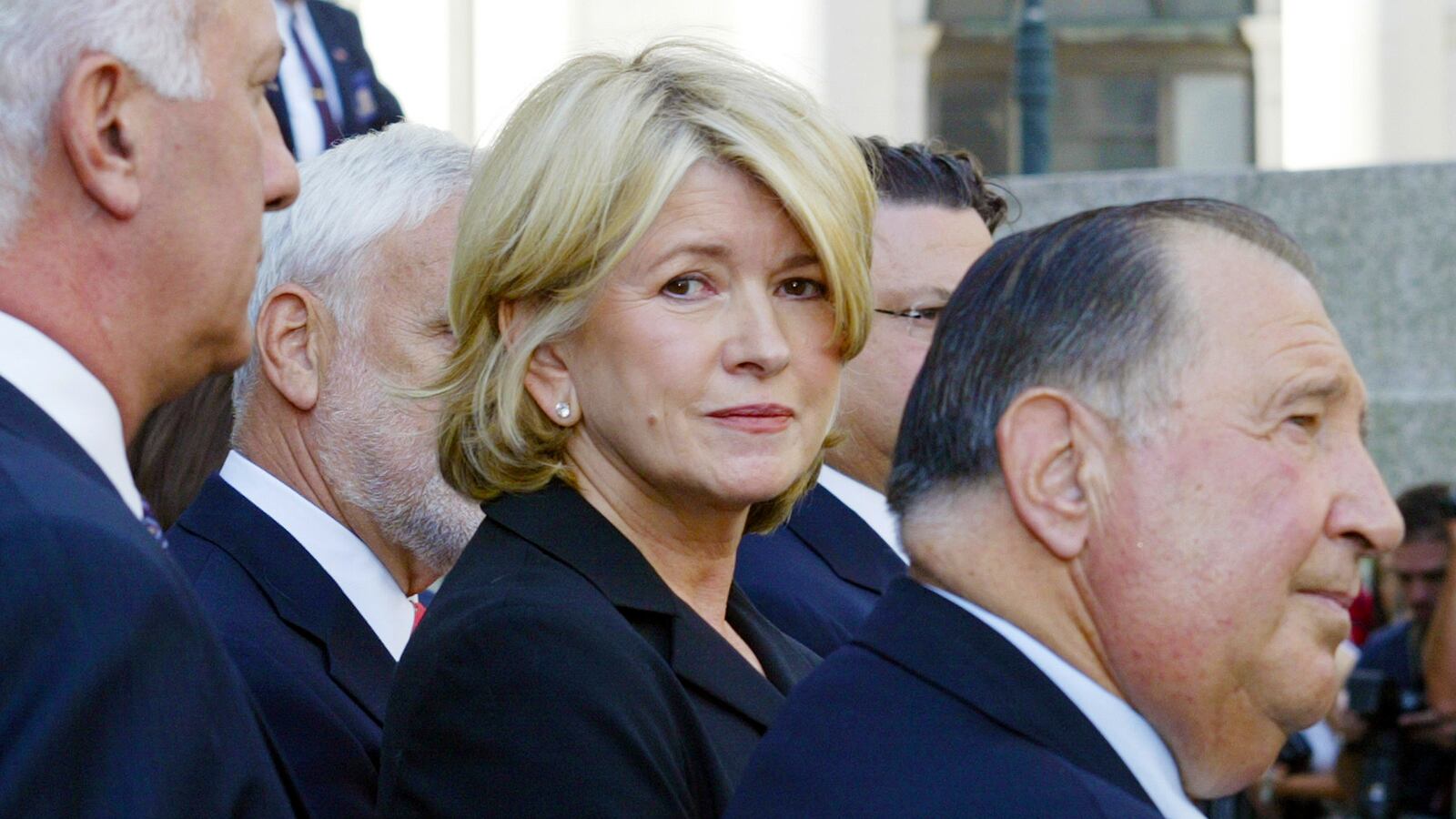On Wednesday, five of the largest banks in the world agreed to pay a combined $5.6 billion to the U.S. Treasury and then pleaded guilty to a series of criminal charges that they had operated for years as a secret cabal to manipulate currency exchange rates, in many cases directly ripping off clients in the process.
The new felons are J.P. Morgan Chase (the largest bank in the U.S. by assets), Citigroup (the third-largest by assets), Barclays (the largest U.K. bank), UBS (the largest bank in Switzerland) and the Royal Bank of Scotland.
Now, just like Martha Stewart—who was not convicted of any Wall Street wrongdoing—the executives of these banks will all share a cell together at Federal Prison Camp in Alderson, West Virginia.
Except, of course, they won’t. The overwhelming majority of the banks’ top executives will never go to jail. Aside from the fines, which the banks will happily pay up out of their ample reserves, the banks will face no real consequences for their actions.
Barclays, UBS, and Royal Bank of Scotland will still be allowed to do business in America. J.P. Morgan and Citigroup will continue to dominate the industry. Bank of America, by the way—the second-largest bank in the U.S. by assets—also paid a fine but did not admit to criminal acts.
In her victory lap, newly ensconced Attorney General Loretta Lynch emphasized that the Department of Justice extracted guilty pleas not from subsidiaries of the banks, but from the parent companies themselves.
The message she was trying to convey? The DOJ had taught a lesson about responsibility. They had not accepted the usual Wall Street excuse—that its institutions are sound, but that there are a few bad actors in any big company.
The message that got through? The exact opposite.
“The lesson here is that the conduct of a small group of employees, or of even a single employee, can reflect badly on all of us and have significant ramifications for the entire firm,” said J.P. Morgan CEO Jamie Dimon.
Indeed, Wednesday, May 19, might have been a seminal day for American justice—if the federal government can just agree to settle all of its nonviolent criminal cases by having the defendant admit wrongdoing while paying an eye-popping (but ultimately affordable) fine with no threat of prison or even radical lifestyle alteration—what accused American wouldn’t just settle with prosecutors?
And in the future, what American wouldn’t just put the American stock market at risk in perpetuity knowing he or she can just pay the fine?
Which brings us back to Federal Prison Camp in Alderson, West Virginia. In 2004, this is where Martha Stewart served a five-month prison sentence for lying to investigators who believed that she had avoided $45,000 in losses by trading ImClone stock on a tip from her broker that founder Sam Waksal was dumping shares.
The insider trading case was weak. She acted on her broker’s advice. The government would have had a devil of a time proving that she knew that advice was tainted by material, non-public information, or that a woman worth hundreds of millions of dollars would break the law over the price of a car too cheap for her to even want.
But she lied to investigators and ticked off the government.
“It’s very important for us to protect the integrity of the system,” said Manhattan’s U.S. attorney, David Kelley, defending the verdict. Kelley did have to defend the verdict, by the way. Although some enjoyed schadenfreude at Stewart’s expense, the government’s case did seem petty and vindictive. It certainly lacked the gravity of a case where multiple powerful financial institutions have admitted to rigging currency markets.
If President Obama believes that his Justice Department has won a major victory against duplicitous banks, then he should take this opportunity to go back and correct the record.
Stewart not only lost five months of her life to prison, she lost her executive position at the company she founded and was subject to ridicule and humiliation throughout her trial.
Clear her record. Give her a full pardon. Do the same for her broker, Peter Bacanovic. He should not only pardon these people, but the United States should apologize to both of them for the government's aggressive handling of such a minor issue.
While Obama’s at it, he can apologize to Bacanovic’s assistant, Douglas Faneuil, a young man bullied by investigators into turning on his boss.
To get a sense of how little these admissions and penalties mean, just look at the stock prices: Citigroup closed Thursday down 0.09 percent. JP Morgan was up 0.26%. Barclays was up 0.71%. UBS was down 0.32%. Royal Bank of Scotland was up 1.00%.
But Stewart, then a 63-year-old cookbook magnate, spent a winter in a prison that was almost impossible for her then-90-year-old mother to access.
“A Justice Department spokesman said that the government was concerned that the decision to send Ms. Stewart to Alderson would be perceived as vindictive,” The New York Times’ Barry Meier wrote in 2004. “But that official, who asked not to be identified, insisted Ms. Stewart’s fate had been sealed by her own fame.”
So far, around 20 bank employees have been fired over this and promises of internal investigations suggest more to follow. But top-level bankers are not losing jobs over this. No powerful lives have been altered.
The banks will still be allowed to pursue business as usual. Before pleading guilty to their crimes, the banks received waivers from the Securities and Exchange Commission, exempting them from rules that prevent felons from running mutual funds or underwriting stock and bond offerings.
Our justice system is obviously unwilling to hold banks to the standards of people. So let’s do the opposite. Let’s start holding people to the standards we hold our banks. It will be easier on everyone.






